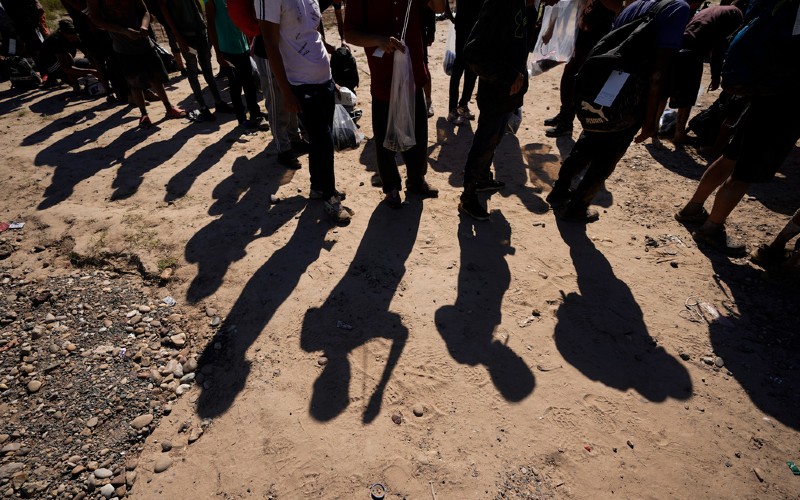Until then, the true motives of a country many see as one of the leading causes of instability in the Middle East are anybody’s guess.
Iran fired missiles at Iraq, Syria and Pakistan this week, fueling concerns that a wider conflict in the region is around the corner.
Already Iran-backed Houthi terrorists have continually targeted commercial shipping near the Gulf of Aden and the Red Sea.
The Suez Canal, through which roughly 15% of all European imports travel, lies at the northern tip of the Red Sea. Without it, Asian ships must travel around Africa to reach South America, Europe and the U.S.
According to Reuters, Iran’s strikes against the three countries were in response to earlier attacks carried out on Iranian soil against Iranian targets.
"In response to the recent atrocities of the Zionist regime, causing the killing of commanders of the Guards and the Axis of Resistance ... one of the main Mossad espionage headquarters in Iraq's Kurdistan region was destroyed with ballistic missiles," the Guards said in a statement.
The Guards also said they “fired a number of ballistic missiles in Syria and destroyed the perpetrators of terrorist operations” believed to be a response to an attack earlier this year by the Sunni Muslim militant group Islamic State against Shi’ite Iran.
What did Iran really gain from this?
Avi Melamed, ex-Israeli intelligence who went on to serve as deputy and later as a senior Arab affairs adviser to two Jerusalem mayors, questioned the gain for Iran in this type of response.
“While Iran’s strikes in Pakistan, Iraq and Syria were meant to project power and deterrence," Melamed said, "these attacks raise interesting questions about Iran’s strategy and don’t align with its usual sophistication and calculation, as in the immediate days following the strikes, they’ve all thus far shown to create more liability than benefit."
The Times of Israel describes Kurdistan as a semi-autonomous region in Iraq.
 “In Iraq, the attacks were met with a determined government-led response, with Iraq’s prime minister summoning Tehran’s ambassador and expressing anger towards the attack," Melamed pointed out. "In its political circles, we are seeing more tensions, many of which were previously in the background, between the Iraqi nationalists angry over the violation of their national sovereignty and the Iranian-supported Shiite militias supporting their Mullah masters."
“In Iraq, the attacks were met with a determined government-led response, with Iraq’s prime minister summoning Tehran’s ambassador and expressing anger towards the attack," Melamed pointed out. "In its political circles, we are seeing more tensions, many of which were previously in the background, between the Iraqi nationalists angry over the violation of their national sovereignty and the Iranian-supported Shiite militias supporting their Mullah masters."
Iraq has also said it will address the Iranian attack with the United Nations.
The Pakistani response was more aggressive. A day after it was hit by Iran, Pakistan responded on Thursday with air strikes on targets inside Iran.
According to The New York Times, the Pakistani Foreign Affairs Ministry said its forces conducted “precision military strikes” against terrorist hideouts in Southeastern Iran.
Iranian officials said nine people were killed, including four children.
In attacking Pakistan, Iran picked on a neighboring Muslim nuclear power, Melamed said.
“It’s attack triggered a counterattack by the Pakistani military on Iran’s only homeland—the first openly credited attack on Iran’s soil by a sovereign military in years. Pakistan made it very clear that it would maintain a zero-tolerance policy on incursions into its territory and its attack on Iran shatters Iran’s previous deterrence posture which focused on illustrating its capacity to fiercely defend its borders,” Melamed said.
The threat posed by Iran is becoming more accepted internationally, Melamed said.
“Iran’s attacks into these nations contributes to the growing international understanding that it is an aggressive, dangerous and unstable state using violence to achieve its objectives. It also diverts attention from Gaza more towards Iran’s regional aggression both directly and through its proxies like the Houthis,” he said.
What’s next for Iran? Probably de-escalation
After this show of aggression, Iran must choose its next steps carefully, or it could open itself up to problems with Afghanistan, Melamed said.
In the long run, Iran may have taken its tenuous relationship with Iraq to another level.
“In the coming days we are likely to see Iran seek to de-escalate its clash with Pakistan and restore its deterrence so that its lack of response to Pakistan’s incursion is not seen as an invitation to its enemies in Afghanistan to potentially attack Iran directly or through insurgent groups within Iran’s borders that are supported by their brethren in Afghanistan.
“Its situation vis-a-vis Iraq will be interesting to watch because there is a significant potential that the rifts between Iraqi political camps are further escalated by Tehran’s actions,” Melamed said.







